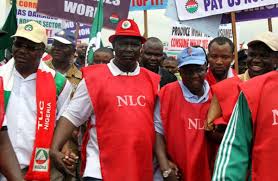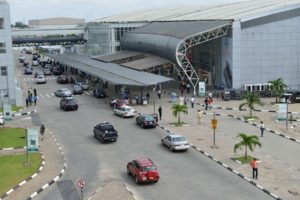
Following the recent industrial action embarked upon by the Nigeria Labour Congress (NLC) and Trade Union Congress (TUC), aviation industry stakeholders have warned that disruptions are disincentive to investment in the sector.
It is estimated that the recent strike action embarked by the NLC and associated unions led to a loss of about N3 billion in the aviation industry within the 36 hours the strike lasted.
As a result of the strike, all flight operations were shut down, including private jet charter services and scheduled operators.
Also, oil and gas shuttle services that are based at the airport were not allowed to access their offices and many flights were cancelled.
Recently, aviation unions picketed Turkish Airlines office and disrupted its operations, forcing the airline to cancel its flights for some days, which led to the abandonment of passengers at the airports, before the case was later resolved.
Analysts believe these hiccups have consistently characterised the mode of service that is delivered by Nigeria’s aviation industry.
“Strike actions embarked by labour have led to loss of humongous amount of revenues and in addition to labour strikes, government failure to abide by agreements it reached with organisations further make investing in the aviation industry very precarious, “said a top player in the industry.
Notably, Bi-Courtney Aviation Services Limited (BASL), has been having running battles with the Federal Airports Authority of Nigeria (FAAN) over period of the later’s concession agreement and the facilities at the Lagos airport that were incorporated into the agreement.
The company that pioneered the concession of cargo services at the Murtala Muhammed International Airport, Lagos, Pan Express Limited was unceremoniously sacked from the concession by the aviation labour unions under the prompting of the then Managing Director of FAAN.
“These incidents have created air of uncertainty in the aviation sector that it will be difficult to attract foreign investment; just as local entrepreneurs are unwilling to commit funds amid such perilous situations, “the top player who doesn’t want his name in print said.
It was learnt that FAAN and some investors have engaged in legal battles over land appropriation, where lands paid by one company would be re-sold to another or outrightly taken over by the agency.
A charter services operator told THISDAY how he acquired a plot of land from FAAN and the land was sold to a construction company.
“So, how do you expect somebody to invest money under such uncertainty? FAAN is a government agency. I cannot fight it. Even if I win the case, FAAN may still decide not to abide by the court ruling,” he said in exasperated voice.
The Chairman of BASL, Dr. Wale Babalakin had once warned that a country that does not abide by its own laws inhibits its growth adding that no serious investor would commit resources in such environment.
Stakeholders in the industry have noted that the greatest disincentive to investment in the aviation industry is the activity of labour unions.
Industry expert and former Commandant of the Murtala Muhammed International Airport, Lagos, Group Captain John Ojikutu, told THISDAY that for too long the industry has allowed the unions have their way in their self-serving initiatives, embarking on strikes at whim to press for their welfare while they kill organisations that sustain the industry.
“For too long, we have allowed this to happen because the regulatory authority, the Nigerian Civil Aviation Authority (NCAA) allowed it. I repeatedly said it when it happened to Bicourtney at the MMA2 Terminal that labour unions strike should not be conducted to disturb or disrupt other airport users, operators and services providers. If they have to demonstrate against their employers, it must be carried out in the employer’s main offices outside the airport general operational areas so as not to be disturbing or disrupting other operators,” Ojikutu said.
Late last year, aviation industry stakeholders pointed out that in addition to factors that lead to poor investment in the aviation sector, high airfares and cargo charges significantly contribute to it, describing as outrageous taxes and charges levied on airlines, entrepreneurs and other users of airports.
In order to enforce the right charges, labour has at different occasions stopped companies from operation and, as industry observers noted, there are many occasions aviation agencies use labour to disrupt operations at the airport.
In February 2020, aviation union was used to force out the officials of the Integrated Intelligent Imaging West Africa Limited (ICUBE), when it wanted to terminate its concession agreement with the company.

A coalition of aviation workers’ unions stormed the tollgate to chase away officials of ICUBE, and replaced, them with FAAN officials citing expiration of contract since February 2019.
However, the former Director General of Nigeria Civil Aviation Authority (NCAA), Benedict Adeyileka, told THISDAY that it would be fair to look at the issues broadly and noted that labour unions take actions when organisations renege on agreements.
He wondered why a company will sign agreement with labour and when it is time to fulfill that agreement the company would renege.
Adeyileka said when a company buys a land at the airport, he is expected to start developing the land immediately; “but some of them allow the land to lie fallow for several years, and when FAAN takes it over they would start complaining.
“You cannot take land at the airport and fail to develop it. People should be given condition if you want to acquire a land, FAAN will tell you the timeline when you are supposed to develop the land under which is there is a failure to build on that land, FAAN will take it over,” he said.
On Labour, Adeyileka said: “Companies renege on agreement with Labour. After signing agreement on the welfare of the workers in your company, they fail to abide by agreements, when labour takes action, everyone will start attacking them. That’s not the right way to go about it. But while protesting labour is not supposed to use key to lock anywhere; it is supposed to carry placards and protest.”



